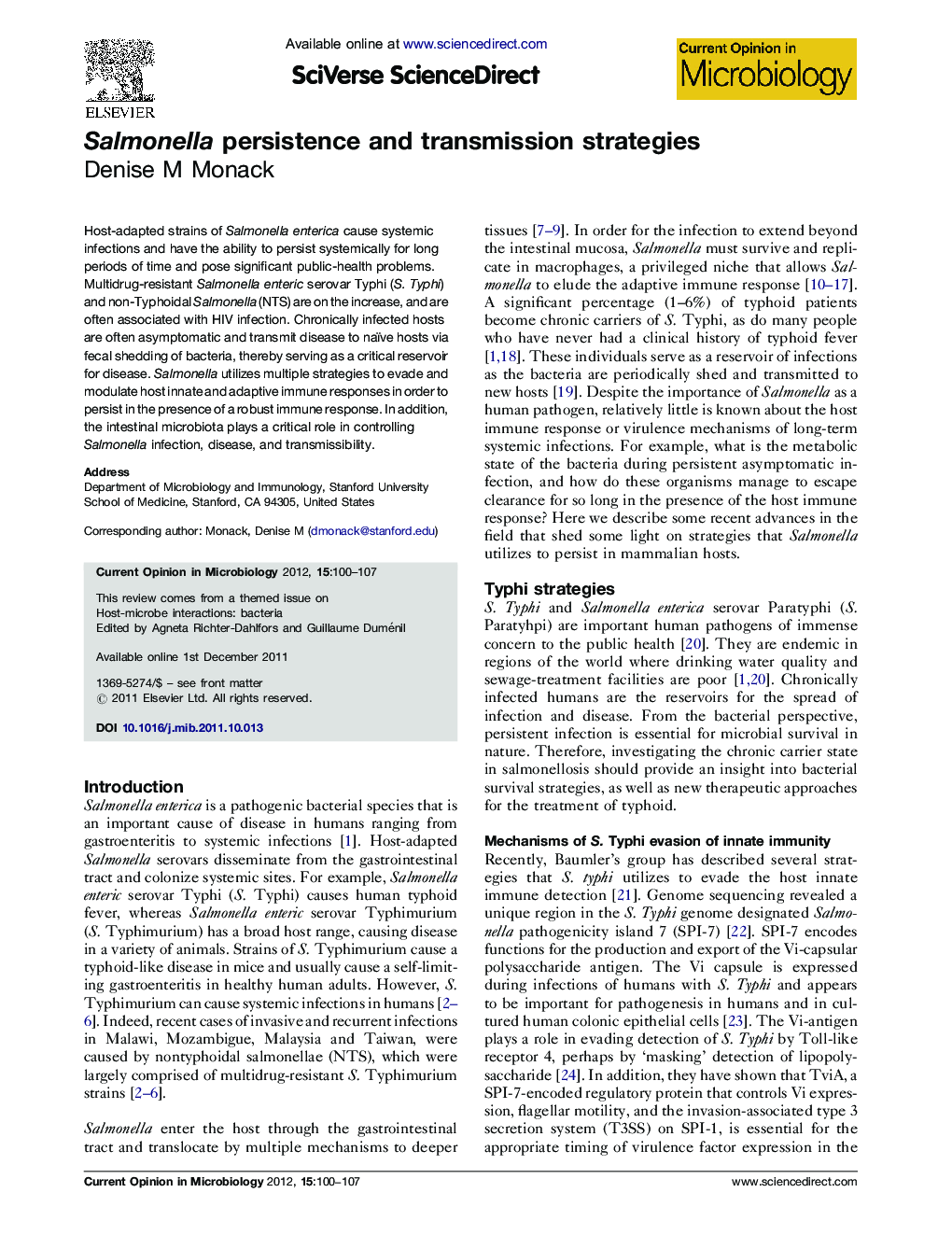| Article ID | Journal | Published Year | Pages | File Type |
|---|---|---|---|---|
| 3399197 | Current Opinion in Microbiology | 2012 | 8 Pages |
Host-adapted strains of Salmonella enterica cause systemic infections and have the ability to persist systemically for long periods of time and pose significant public-health problems. Multidrug-resistant Salmonella enteric serovar Typhi (S. Typhi) and non-Typhoidal Salmonella (NTS) are on the increase, and are often associated with HIV infection. Chronically infected hosts are often asymptomatic and transmit disease to naïve hosts via fecal shedding of bacteria, thereby serving as a critical reservoir for disease. Salmonella utilizes multiple strategies to evade and modulate host innate and adaptive immune responses in order to persist in the presence of a robust immune response. In addition, the intestinal microbiota plays a critical role in controlling Salmonella infection, disease, and transmissibility.
► Mechanisms of Salmonella enterica serovar Typhi persistence in humans. ► Mechanisms of Salmonella enterica serovar Typhimurium persistence in mice. ► Role of intestinal microbiota in Salmonella host-to-host transmission.
